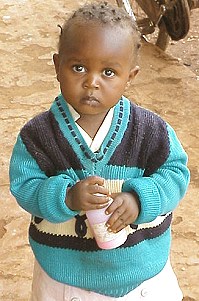 Overview Despite the stunning advances in medicine during the last half century, over 25,000 children die each day for want of medicine that costs less than a cup of coffee. A short list of infectious diseases treatable with inexpensive generic drugs accounts for 70-90% of all childhood illness and death in the developing world. Existing access to essential medicines for much of the poorest is woefully inadequate. A frightening percentage of the most vulnerable populations live hours, if not days from the nearest source of life saving medicines. Moreover, the current limited distribution often suffers from weak supply, a lack of rigorous quality control and unfair or simply inaccessible pricing. To address this yawning healthcare gap Scott Hillstrom and Eva Ombaka, Ph.D. founded The Child and Family Wellness Shops network (CFWshops) in 1997, adapting a traditional franchising model to the problem of distributing essential medicines in remote communities. The Micro-Franchising Model - An Effective, Scalable Solution The HealthStore Foundation's CFW model is a network of micro pharmacies and clinics whose mission is to provide access to essential medicines to marginalized populations in the developing world. The CFW outlets target the most common killer diseases including malaria, respiratory infections, and dysentery among others. They also provide health education and prevention services. Why a franchise model? On average the 20 poorest developing countries spend less than $33 per person each year on health care compared to over $2,500 in the 20 most developed countries and $4,500 in the US. Even a doubling of public health funding would fall short of meeting the need. While public funding will always be needed, at least part of the full solution to the distribution of medicines must incorporate a sustainable market-based model with effective incentives. The CFW model incorporates all the key elements of successful franchising: uniform systems and training; careful selection of locations; and most importantly, strict controls on quality backed up by regular inspections. And importantly HealthStore uses the combined buying power of the full network to obtain quality medicines at the lowest possible cost. The network operates two types of outlets; basic drug shops owned and operated by community health workers, and clinics owned and operated by nurses who provide a deeper list of essential medicines as well as basic primary care. As the franchisor, HealthStore can revoke a franchisee's right to operate an outlet if the franchisee fails to comply with the franchise rules and standards. HealthStore's customers are primarily lower or middle-income women and children subsisting on agriculture, although people of all ages and incomes are treated. CFW outlets are located at market centers in agricultural areas of approximately 5,000 people. The essential components of the HealthStore Foundation's CFW model include:
Comments are closed.
|
Blog Team
Posts on our blog are contributed by a team of professionals dedicated to developing valuable resources for the Social Sector Franchising community. Archives
May 2024
|

 RSS Feed
RSS Feed
